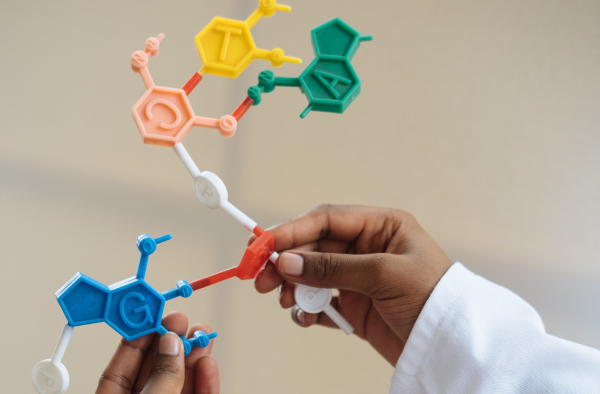
Biochemistry and molecular biology are two related fields of study that overlap in many areas, but they also have some key differences.
Biochemistry is the study of the chemical processes and substances that occur within living organisms. This includes the study of enzymes, proteins, carbohydrates, lipids, nucleic acids, and other biomolecules.
Biochemists study how these molecules interact and work together to carry out the processes that sustain life, such as metabolism, cell division, and DNA replication.
Molecular biology, on the other hand, is the study of the molecular basis of biological activity. This includes the study of DNA, RNA, and protein synthesis, as well as the regulation of gene expression. Molecular biologists study how genetic information is stored, transmitted, and used to control the function of cells and organisms.
Biochemistry and molecular biology are two related fields of study that overlap in many areas, but they also have some key differences.
Similarities
- Both fields involve the study of biomolecules such as enzymes, proteins, carbohydrates, lipids, and nucleic acids.
- Both fields are essential for understanding the complex mechanisms that underlie life.
- Both fields have a strong foundation in chemistry and biology.
- Both fields use similar tools and techniques, such as genetic engineering, protein purification and characterisation, and computational modelling.
Differences
- Biochemistry focuses on the chemical processes and substances within living organisms, while molecular biology focuses on the molecular basis of biological activity.
- Biochemistry encompasses many sub-disciplines, while molecular biology is more focused on genetics and gene expression.
Biochemistry is more applied, while molecular biology is more focused on basic research. - Biochemistry research is applied in industry, agriculture, and medicine, while molecular biology research has practical applications in medicine, biotechnology, and other fields.
- Biochemistry research is more likely to lead to the development of new drugs and therapies, while molecular biology research is more likely to lead to new understanding of the fundamental processes of life.
Biochemistry and molecular biology are two interrelated fields of study that share many similarities and also have some key differences. Biochemistry focuses on the chemical processes and substances that occur within living organisms, while molecular biology focuses on the molecular basis of biological activity, particularly at the level of genes and their expression.
Both fields have a strong foundation in chemistry and biology and use similar tools and techniques such as genetic engineering, protein purification and characterisation, and computational modelling.
Biochemistry is a broad field that encompasses many sub-disciplines, such as metabolic biochemistry, structural biochemistry, and biophysical chemistry. Molecular biology is more focused and typically deals with genetics and gene expression.
Biochemistry is more applied, with many biochemists working in industry, agriculture, and medicine, where their research can be used to develop new drugs and therapies, improve crop yields, and more. Molecular biology is more focused on basic research, although it also has many practical applications in medicine, biotechnology, and other fields.
Both fields are essential for understanding the complex mechanisms that underlie life. Biochemistry and molecular biology are constantly evolving and advancing, as scientists continue to make new discoveries about the nature of life and the universe. Together, these two fields provide a deeper understanding of the fundamental processes of life and pave the way for new technologies and treatments that can improve human health and well-being.







